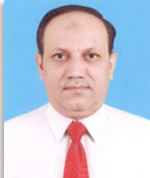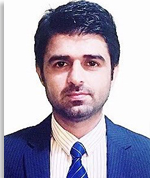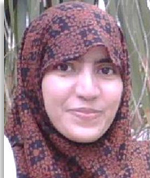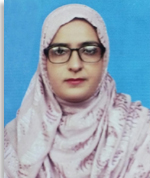 |
||
 |
Centre for Applied Molecular Biology (CAMB)
 In order to build a National capability in the newly emerging science, the Federal Ministry of Science & Technology (MoST) approved the establishment of Centre for Applied Molecular Biology (CAMB) at University of the Punjab Lahore in 1987 which is located back to back with the laboratory block of the Centre of Excellence in Molecular Biology (CEMB). In March 2015, the Prime Minister of Pakistan approved the transfer of CAMB to University of the Punjab. Accordingly, MoST handed over the administrative control of CAMB to University of the Punjab, Lahore w.e.f 01.07.2015 along with all assets and liabilities. The CAMB’s laboratory block includes Forensic DNA Typing, Molecular Diagnostics of infectious diseases, proteomics, virology and DNA Core Facility laboratories and is surrounded by a vast area of land where crops and other plants are sown for research in agriculture molecular biology. CAMB being the renowned scientific research entity encourages the osmosis of research from Lab into different sectors of the society. It strives to provide a suitable environment and encourages researchers to work on collaborative research projects to advance knowledge, to propose solutions to some of the major issues of today and to develop new technologies for the future. CAMB is providing reliable, accurate, rapid and more economical diagnostic & Forensic services to the law enforcement agencies, courts and general public and DNA Sequencing and genotyping facilities to the various academic & R&D organization throughout Pakistan. Centre is also offering M. Phil & Ph.D degree programs in “Molecular Biology & Forensic sciences” in academics. Students of various universities also use the platform of CAMB for completion of their degrees. The whole set up of CAMB represents a unique and most economical mode to optimally utilize the extremely limited resources of personnel and materials.
|
|||||||||||||||||||||||||||||||||||||||||||||||||||||||||||||||||||||||||||||||||||||||||||||||||||||||||||||||||||||||||||||||||||||||||||||||||||||||||||||||||||||||||||||||||||||||||||||||||||||||||||||||||||||||||||
Vision, Mission Statement and Goals
Teaching Faculty
Publications/ Research / BooksLast Three Year Articles Year: 2015 1- Butt AM, Castellano L, Idrees M.,; Next generation sequencing reveals differential expression profiles of hepatic microRNAs in chronic hepatitis C patients., Journal of Hepatology, 62, 2015 2- Butt AM, Castellano L, Idrees M, Tong Y,; Deep sequencing shows microRNA expression in hepatitis C patients is associated with the end treatment response., Journal of Clinical Virology, 69, 2015 3- Amat-ur-Rasool H, Saghir A, Idrees M,; Computational Prediction and Analysis of Envelop Glycoprotein Epitopes of DENV-2 and DENV-3 Pakistani isolates: A First Step towards Dengue Vaccine Development., PLOS ONE., 16, 2015 4- Khubaib B, Idrees M, Afzal S, Wasim M.,; The genotype CC of IL-28B SNP rs12979860 is significantly associated with a sustained virological response in chronic HCV Pakistani patients., Journal of Digestive Diseases, 16, 2015 5- Ali A, Idrees M.,; Expression of Hepatitis C Virus Core and E2 antigenic recombinant proteins and their use for development of diagnostic assays., International Journal of Infectious Diseases, 84, 2015 6- Hussain M, Idrees M, Afzal S.,; Development of Global Consensus of Dengue Virus Envelope Glycoprotein for Epitopes based vaccine design., , 11(1), 2015 7- Hussain A, Idrees M, Asif M, Ali L, Rasool M.,; Phylogenetic and 2D/3D Analysis of HCV 1a NS4A Gene/Protein in, Pakistani Isolates., Hepatitis Monthly, 15(6), 2015 8- Mariam Shahid, Muhammad Farooq Sabar, Iqbal Bano, Ziaur Rahman, Zafar Iqbal, Sayyed Saadia Fatim Ali, Muhammad Ghani, Muhammad Iqbal & Tayyab Husnain,; (2015). Sequence variants on 17q21 are associated with the susceptibility of asthma in the population of Lahore, Pakistan., Journal of Asthma, 52, 2015 9- Kashif Rehman, Muhammad Akram Tariq, Muhammad Farooq Sabar.,; (2015) Allele frequency distribution of CYP2C19*2 allelic variants associated with clopidogrel resistance in cardiac patients of Pakistan., Experimental and Therapeutic Medicine, 10, 2015 10- Mariam Shahid, Muhammad Farooq Sabar, Ziaur Rahman, Iqbal Bano, Muhammad Usman Ghani, Samra Kousar, Muhammad Akram, Tayyab Husnain,; Urbanization triggers asthma in ‘C’ allele carriers for rs12603332, European Academy of Allergy and Clinical Immunology (EAACI), P04, Istanbul, Turkey, , 2015 11- Javed Iqbal Wattoo, Muhammad Shahzad Iqbal, Muhammad Arif, Zafar Saleem, Muhammad Naveed Shahid and Muhammad Iqbal,; Homology Modeling, Functional Annotation and Comparative Genome Analysis of GBSS Enzyme in Rice and Maize Genomes, INTERNATIONAL JOURNAL OF AGRICULTURE & BIOLOGY, , 2015 12- Muhammad Bilal, Muhammad Saeed, Idrees Ahmad Nasir, Bushra Tabassum, Mariam Zameer, Anwar Khan, Muhammad Tariq, Muhammad Aslam Javed, and Tayyab Husnain..,; Association mapping of cane weight and tillers per plant in sugarcane, Biotechnology & Biotechnological Equipment, 29, 2015 13- Hamid Bashir ,; Simple procedure applying lactose induction and one step purification for high yield production of rh cifn, Biotechnology and Applied Biochemistry, , 2015 14- Mariam Shahid, Muhammad Farooq Sabar, Iqbal Bano, Ziaur Rahman, Zafar Iqbal, Sayyed Saadia Fatim Ali, Muhammad Ghani, Muhammad Iqbal & Tayyab Husnain,; (2015). Sequence variants on 17q21 are associated with the susceptibility of asthma in the population of Lahore, Pakistan., Journal of Asthma, 52, 2015 15- Mariam Shahid, Muhammad Farooq Sabar, Ziaur Rahman, Iqbal Bano, Muhammad Usman Ghani, Samra Kousar, Muhammad Akram, Tayyab Husnain,; Urbanization triggers asthma in ‘C’ allele carriers for rs12603332, European Academy of Allergy and Clinical Immunology (EAACI), P04, Istanbul, Turkey, , 2015 16- Shan, M. A., Tahira, F., Shafique, M., Hussain, M., Perveen, R., Shahzad, M., Ehsan, F., Shahzad, M. S., Rehman, Z., Ali, Q., and Iqbal, M,; Estimation of different Biochemical Intensities in Drinking water from Easterm Region of Lahore City, International journal of Adv.Life.Sci, 2(3), 2015 17- Muhammad Shafique Manzoor Hussain Muhamamd Adnan Shan Muhammad Shahzad Safdar Hussain Nazim Hussain Farhana Ehsan Rukhsana Perveen Muhammad Iqbal,; Genetic Diversity of 15 autosomal STR loci in the population of Southern Punjab Pakistan, Forensic Science International:Genetics, , 2015 18- Ahmed N1, Bashir H, Zafar AU, Khan MA, Tahir S, Khan F, Khan MI, Akram M, Husnain T.,; Optimization of conditions for high-level expression and purification of human recombinant consensus interferon (rh-cIFN) and its characterization, Biotechnology & Applied Biochemistry, , 2015 19- Muhammad Shafique, Manzoor Hussain, Muhamamd Adnan Shan, Muhammad Shahzad, Safdar Hussain, Nazim Hussain, Farhana Ehsan, Rukhsana Perveen, Muhammad Iqbal,; Genetic Diversity of 15 autosomal STR loci in the population of Southern Punjab Pakistan, Forensic Science International: Genetics, , 2015 20- Nasrullah I, Butt AM, Tahir S, Idrees M, Tong Y,; Genomic analysis of codon usage show influence of mutation pressure, natural selection, and host features on Marburg virus evolution, BMC Evolutionary Biology, 15, 2015 21- Akram M, Fatima Z, Purdy MA, Sue A, Saleem S, Amin I, Shahid M, Nawaz R, Idrees M,; Introduction and evolution of dengue virus type 2 in Pakistan: a phylogeographic analysis, Virology Journal, 12, 2015 22- Shaheen MA, Idrees M,; Evidence-based consensus on the diagnosis, prevention and management of hepatitis C virus disease, World J Hepatol, 7, 2015 23- Sabar, M.F., Ghani, M.U., Shahid, M., Sumrin, A., Ali, A., Akram, M., Tariq, M.A., Bano, I.,; Analysis of genetic variants of ADAM33 gene for Susceptibility of Asthma in Pakistan, Journal of Asthma, 10, 2015 24- Iqbal Z., Akram A.M., Akhtar T., Khalid M., Aziz Z., Aleem A., Gill A.T., Khalid Am., Alanazi A., Shah I.H., Khalid M., Sabar M.F., and Iqbal M,; High Frequencies of Compound BCR-ABL Mutations and Their association with Imatinib Resistant, Disease Progression and Late Crhonic Phase Disease in Pakistani Chronic Myeloid Leukemia Patients Necessitate the Inclusion of Molecular Testing in Routine Clini, Blood Online Publication, 126, 2015 25- Iqbal, Z., Akhtar T., Awan, T., Aleem, A., Sabir, N., Absar, A., Sabir, N., Absar M., Shammas, M.A., SHAH, I.H., Khalid, M., Taj, A.S,., Jameel, A., Alanazi, A., Gill, A.T., Hashmi, J.A., Hussain, A., Sabar, M.F., Khalid, A.M., Qazi M.,h., Karim, S., Sidd,; High Frequesy and poor prognosis of late childhood BCR-ABL positive and MLL-AF4 positive all define the need for advanced molecular diagnostics and improved therapeutic strateggies in pediatric B-ALL in Pakistan, Molecular Diagnosis & Therapy, 19, 2015 26- H. Sadia, S. Manzoor, A. Wajid, M. Tayyab, S, Firyal, A.S. Hashmi, T. Yaqub, Z.U. Mughal, A.K, Mehmood, A.R. Awan, K. Mahmood, M.Y. Khan and M. Wasim,; COX-2 and BRCA 1 have altered expression profile in different canine tumors, Journal fo Plant and Animal Sciences, 26, 2015 27- Haleema Sadia, Saba Manzoor, Abdul Wajid, Muhammat Tayyab, Sehrish Faryal, Abu Saeed Hashmi, Zia Ullah Mughal, Asim Khalid Mahmood, Tahir Yaqoob, Ali Raza Awan and Muhammad Wasim,; Feline mammary tumors show altered COX-2 and BRCA1 expression, Pakistan Journal of Zoology, 47, 2015 28- Muhammad Hassan Siddiqi, Tanveer Akhtar, Allah Rakha, Ghazanfar Abbas, Akram Ali, Naeem Haider, Azam Ali, Sikdandar Hayat, Syeda Masooma, Jamil Ahmad, Muhammad Akram Tariq, Mannis Van Oven and Fazle Majid Khan,; Genetic characterization of the Makrani people of Pakistan from mitochondrial DNA control-region data, Legal Medicine, 134, 2015 29- Sikandar Hayat, Tanveer Akhtar, Muhammad Hassan Siddiqi, Allah Rakha, Naeem Haider, Muhammad Tayyab, Chazanfar Abbas, Azam Ali, Syed Yasir Abbas Bukhari, Muhammad Akram Tariq and Fazle Majid Khan,; Mitochondrial DNA control region sequences study in Saraiki Population from Pakistan, Legal Medicine, 140, 2015 30- A Khan, B Tabassum, I A Nasir, M Bilal, M Tariq, T Husnain,; Potato virus x from Pakistan: Coat protien sequence analysis, Journal of Animal and Plant Sciences, 25, 2015 31- Hamid Bashir, Nadeem Ahmed, Mohsin Ahmad Khan, Ahmad Usman Zafar, Saad Tahir, Hina Kanwal, Faidad Khan, Zia ur Rahman and Tayyab Husnain,; Evaluating the auto induction expression system and one step purification for high level expression and purification of gallbladder derived rhIL 1 Ra, , , 2015 32- Ruqeyah Abdul Majeed, Ahmad Ali ShAHID, Muhammad Arif Zafar Saleem Muhammad Naveed Shahid and Muhammad Iqbal,; First Report of Curvularia LUNATA Casuring Brown Leaf spots of Rice in Punjab, Pakistan, The American Phytopathological Society, 91, 2015 33- Muhammad Usman Mirza, Noor-ul-Huda Ghori, Nazia Ikram, Abdur Rehman Adil and Sadia Manzoor,; Pharmacoinformatics approach for investigation of alternative potential hepatitis C Virus nonstructural protein 5 B inhibitors, Drug Design, Development and Therapy, 1825, 2015
Seminar/ ConferencesConference Proceedings Year: 2015 1- Conference proceeding on Urbanization triggers asthma in ‘C’ allele carriers for rs12603332, European Academy of Allergy and Clinical Immunology (EAACI), P04, Istanbul, Turkey, , 2015 2- Conference proceeding on Urbanization triggers asthma in ‘C’ allele carriers for rs12603332, European Academy of Allergy and Clinical Immunology (EAACI), P04, Istanbul, Turkey, , 2015 Will be updated soon Facilities
Faculty
Health Sciences |
|||||||||||||||||||||||||||||||||||||||||||||||||||||||||||||||||||||||||||||||||||||||||||||||||||||||||||||||||||||||||||||||||||||||||||||||||||||||||||||||||||||||||||||||||||||||||||||||||||||||||||||||||||||||||||
|
|
|||||||||||||||||||||||||||||||||||||||||||||||||||||||||||||||||||||||||||||||||||||||||||||||||||||||||||||||||||||||||||||||||||||||||||||||||||||||||||||||||||||||||||||||||||||||||||||||||||||||||||||||||||||||||||




























